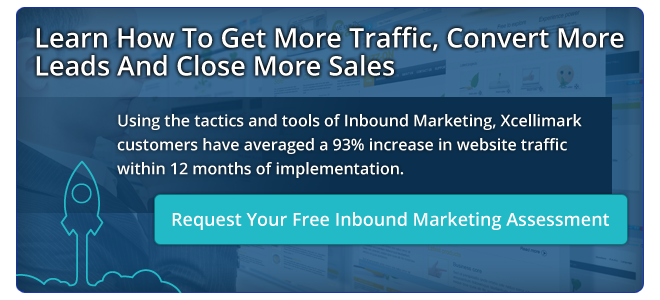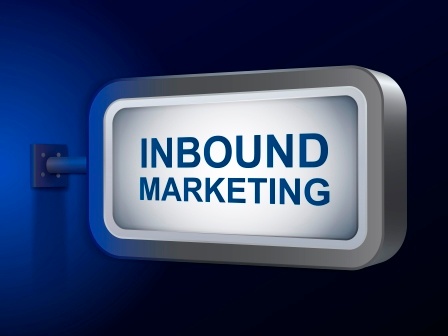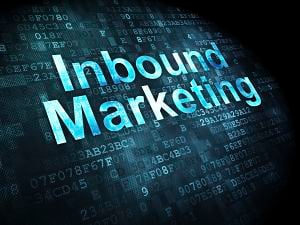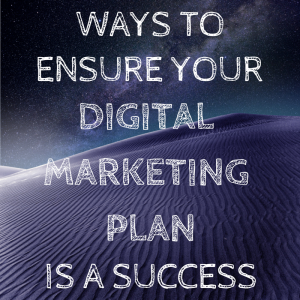Do Inbound Marketing Now Or You’ll Hate Yourself Later


Inbound marketing is an increasingly central component of any comprehensive online marketing plan. It's essential for the most specialized B2B firms, trend-seeking B2C companies and everyone in between.
Unfortunately, many business owners simply aren't aware of the opportunities presented by inbound marketing. Others doubt that its benefits are as impressive as boosters claim or feel as if they lack the time to develop an inbound marketing plan.
Whatever the excuse, those who fail to invest in inbound marketing tend to regret it later - often after their competitors have muscled into their formerly cozy niche.
General Inbound Marketing Benefits and Differentiators
Inbound marketing's very name sets it apart from outbound marketing, an adjacent but very different concept. Outbound marketing is roughly synonymous with "traditional" advertising or marketing. It encompasses such familiar media as radio and television ads, outdoor advertising and outbound sales calls.
Generally speaking, outbound marketing involves actively reaching out to and making contact with prospects and leads.
While outbound marketing has its place in a comprehensive online marketing ecosystem, it's no longer enough to support a full-blown, conversion-centric strategy.
Widespread Internet use has given rise to a second type of marketing that formerly took a backseat - when it was even considered at all - to outbound marketing. This second type of marketing is known as inbound marketing.
As the name suggests, inbound marketing focuses on drawing prospects to your digital doorstep. While it's not exactly a passive marketing method, inbound marketing provides your prospects with substantial freedom to make their own decisions about whether to enter your sales funnel and further engage with your company.
Of course, quality inbound marketing campaigns provide strong encouragement to engage - all but making the decision for the prospect.
Inbound marketing media include:
- Search engine optimization and search engine marketing- Social media marketing
- Content marketing with high-quality, relevant pieces of content (including blog posts, white papers, case studies, website content, press releases and infographics)
- Customer reviews in directories and on social sites
- PPC ads
- Optimized, campaign-specific landing pages
- Email marketing, including mailing lists and newsletters
- Ongoing lead nurturing and email workflows
The general benefits of inbound marketing include:
- Attracting prospects looking for the services that your business provides
- Differentiating your company from the competition through judicious use of high-quality content
- Providing actionable solutions for your prospects, not just a canned sales pitch
- Shepherding qualified leads through your sales funnel via marketing automation
- Constantly testing and tweaking aspects of your marketing campaign on the fly
- Closing more sales and reducing your total cost per sale (also known as marketing ROI)
Why You Shouldn't Doubt the Importance of Inbound Marketing
If you're still not convinced that your online marketing campaign demands a dose of inbound, these three key inbound benefits might help you reconsider.
1. Inbound Can Seamlessly Merge Your Sales and Marketing Teams
Well-executed inbound marketing campaigns seamlessly merge traditional sales and marketing efforts, producing a hybrid outreach, lead nurturing and conversion operation that are greater than the sum of their parts.
That's because the typical company's sales team finds itself on the front lines of lead generation and conversion. Using insights garnered by real-world sales experiences, marketers are able to create quality, inbound-oriented content that speaks directly to prospects' needs and pain points.
In turn, that makes the sales team's job easier - and boosts those all-important conversion and revenue metrics.
Understanding the natural synergies between sales and inbound marketing is critical to maintaining internal morale and keeping employees focused on long-term goals. In many organizations, particularly those focused solely on inbound marketing, the respective goals and directives to which sales and marketing teams are held may have substantial overlap.
This can put the two departments at cross-purposes, fostering counterproductive backbiting, suspicion and competition. Integrated inbound marketing campaigns eliminate this unhealthy clash and foster an environment of genuine cooperation.
2. Inbound Marketing Produces Key Insights
Not every firm has an internal sales team. If you're not big enough to have multiple salespeople on staff, inbound marketing can still be a powerful asset. In fact, it can fill much of the strategic gap left by your nonexistent sales force.
As time goes on, the analytic tools you use to monitor your inbound campaign provide critical insights into the behaviors and motivations of your buyers. This allows you to segment prospects into "buyer personas" that allow for targeted marketing efforts and hone your messaging for each group.
3. It's Really Easy to Test Inbound Marketing Strategies
It's easier and faster to test inbound marketing tactics within the context of a campaign than to test and change outbound protocols built over a much longer timeframe. Thanks to the automated, analytic-rich nature of many inbound tactics, not to mention the fact that content creation doesn't require long-term media buys, switching out a poorly performing inbound component is as simple as editing a page of content or changing the settings on a marketing automation platform.
One of the best ways to test inbound marketing effectiveness is A/B testing. A/B testing involves creating and displaying two versions of the same content with the goal of seeing which is better at engaging and converting prospects. Once you've gathered enough data to make an accurate determination, you simply discard the underperforming version.
Don't Ignore the Importance of Inbound Marketing
At this point, it should be clear that your online marketing plan isn't complete without an effective inbound marketing component. After all, inbound marketing raises awareness of your company among key prospects, draws said prospects along your sales funnel and ultimately boosts the likelihood that they'll convert.
If you're ready to develop a comprehensive inbound marketing strategy, don't hesitate to reach out to us for advice or guidance. We'll set you up with a free Inbound Marketing Assessment to show you how to avoid making a hasty strategic decision that you could soon come to regret.








